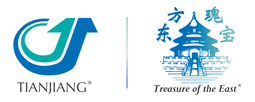Hey! Hay Fever is Here
by Dr. Ann Wang
Spring has arrived and flowers are in full bloom, but there is a common health issue that has also begun to intensify: Hay Fever. Hay Fever is caused by an individual's allergy to pollen and the symptoms are similar to those of a cold, mainly: constant sneezing (especially in the morning), runny nose, itchy eyes, itchy throat, and itchy skin. Modern medicine believes hay fever is an allergic disease that mainly recognizes pollen (including other substances) as antigens that stimulate the body to produce antibodies and the combination of antigens and antibodies together causes various symptoms. Antihistamine medicine can be taken orally in larger and larger doses, but there will be corresponding side effects. There are also some topical medications to relieve nasal congestion and eye itching, however, the efficacy will decrease as the usage of these medications increases.
As early as more than two thousand years ago, Traditional Chinese Medicine (TCM) had detailed records of allergic rhinitis. TCM believes that the main cause of Hay Fever is the evil of wind, heat invading the body, and the physical qi inside of the body is weakened. The pathogenesis of Hay Fever is deficiency in the root and excess in the superficiality, practitioners should first treat the symptoms with acupuncture, and then treat the root cause with Chinese herbal medicine.
Acupuncture and moxibustion are both effective in treating Hay Fever with quick results and no side effects. Acupuncture has three advantages in treating Hay Fever. First, the curative effect is fast. Usually, patients will experience relief on the same day of acupuncture and moxibustion treatment. Second, acupuncture has no toxic side effects. Third, like Traditional Chinese Medicine, acupuncture functions to strengthen the body, eliminate pathogens, and improve the resistance of the body. Clinical data shows that acupuncture can regulate and maintain the balance of nervous, endocrine, and immune systems in the body, enhance the body's immune function, and have a clear anti-allergic effect.
In clinical practice, each individual has a different degree of acceptance of acupuncture; some respond faster, and some slower. Generally, after four acupuncture treatments and one month of herbal medicine treatment, the symptoms of itching, sneezing, and nasal congestion will significantly reduce. For particularly severe cases of Hay Fever, acupuncture treatments should occur once a week until the hay fever season is over.
Treasure of the East has a collection of formulas for managing Hay Fever.
For the onset of symptoms:
- Hua Fen Fang (Modern formula)
- Cang Er Zi San (Classical formula)
- Xin Yi San (Classical formula)
Hua Fen Fang is the most recommended by Dr. Wang according to her clinical experience.
With rhinitis:
- Bi Yan Wan (Modern formula)
Maintenance:
- Bi Qiu Tang (Modern formula)
Preventive Care:
- Yu Ping Fang San (Classical formula)



















